
Khiva: The Timeless Oasis of the Silk Road
Khiva is a city where time seems to stand still. Nestled in the heart of Uzbekistan, this ancient oasis was a vital stop along the Silk Road. Walking through its narrow streets, you'll feel transported back to a bygone era of caravans and traders. The city's walls, made of clay and brick, enclose a treasure trove of history and culture. The inner city, known as Itchan Kala, is a UNESCO World Heritage site. It boasts over 50 historic monuments and hundreds of houses dating back to the 18th and 19th centuries. Marvel at the intricate tile work of the Kalta Minor Minaret and the grandeur of the Kunya-Ark Citadel. Don't miss the Juma Mosque, with its 218 wooden columns that create a serene and mystical atmosphere. Khiva is not just about history; it's also a place where you can experience local life. The bustling bazaars offer a glimpse into the daily routines of its friendly inhabitants. Sample traditional Uzbek dishes like plov and shashlik, and don't forget to try the local sweets. As the sun sets, the city takes on a magical glow, turning every corner into a picturesque scene.
Local tips in Khiva
- Visit early in the morning or late in the afternoon to avoid the midday heat and crowds.
- Wear comfortable shoes, as the cobblestone streets can be uneven.
- Bring cash, as many local shops and eateries do not accept credit cards.
- Hire a local guide to get deeper insights into the history and significance of each landmark.
- Stay overnight in a local guesthouse to experience the city's ambiance after dark.
Neighbourhoods in Khiva
Khiva: The Timeless Oasis of the Silk Road
Khiva is a city where time seems to stand still. Nestled in the heart of Uzbekistan, this ancient oasis was a vital stop along the Silk Road. Walking through its narrow streets, you'll feel transported back to a bygone era of caravans and traders. The city's walls, made of clay and brick, enclose a treasure trove of history and culture. The inner city, known as Itchan Kala, is a UNESCO World Heritage site. It boasts over 50 historic monuments and hundreds of houses dating back to the 18th and 19th centuries. Marvel at the intricate tile work of the Kalta Minor Minaret and the grandeur of the Kunya-Ark Citadel. Don't miss the Juma Mosque, with its 218 wooden columns that create a serene and mystical atmosphere. Khiva is not just about history; it's also a place where you can experience local life. The bustling bazaars offer a glimpse into the daily routines of its friendly inhabitants. Sample traditional Uzbek dishes like plov and shashlik, and don't forget to try the local sweets. As the sun sets, the city takes on a magical glow, turning every corner into a picturesque scene.
When is the best time to go to Khiva?
Iconic landmarks you can’t miss
Itchan Kala
Discover the historical splendor of Itchan Kala, a UNESCO World Heritage Site in Khiva, where ancient architecture and vibrant culture come alive.
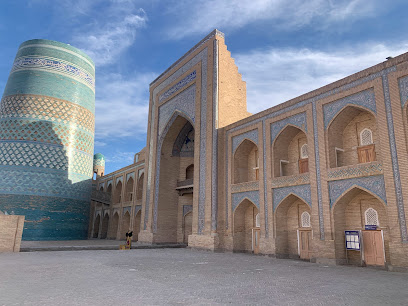
Juma Mosque
Explore the architectural beauty and historical significance of Juma Mosque in Khiva, Uzbekistan — a serene sanctuary steeped in culture.
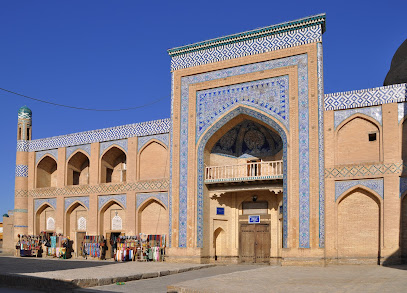
Kalta Minor Minaret
Discover the enchanting Kalta Minor Minaret, a historical landmark in Khiva famed for its stunning tile work and majestic height.
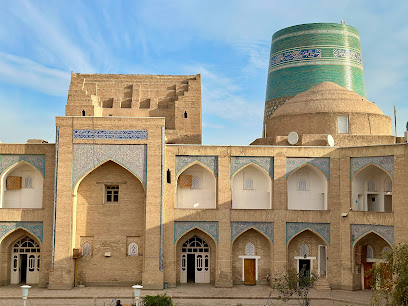
Islam Khoja Minaret
Experience the breathtaking beauty of the Islam Khoja Minaret, an iconic symbol of Khiva's rich cultural heritage and stunning architecture.
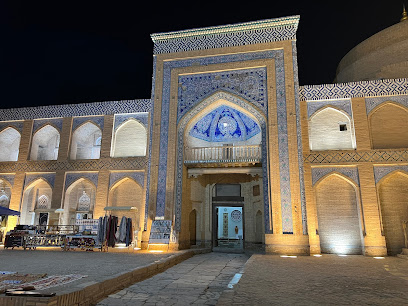
Toshhovli Palace
Discover the majestic Toshhovli Palace in Khiva, a historical monument of exquisite architecture and rich cultural heritage in Uzbekistan.
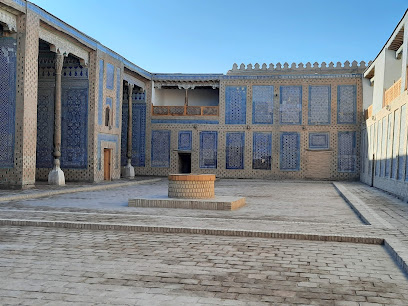
Kuhna Ark
Discover the historical marvel of Kuhna Ark in Khiva, a must-visit museum that showcases the rich cultural heritage of Uzbekistan.
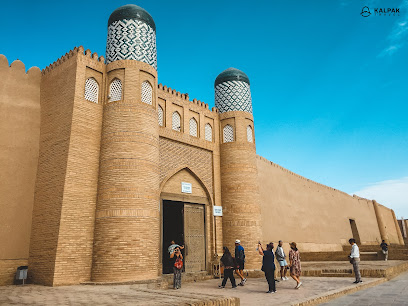
Orient Star Khiva
Discover the charm of Khiva at Orient Star Khiva, a hotel that combines traditional hospitality with modern comforts in the heart of Uzbekistan's historical treasures.

Pahlavan Mahmoud Mausoleum
Explore the architectural wonder of Pahlavan Mahmoud Mausoleum, a historical landmark in Khiva showcasing Uzbekistan's rich cultural heritage.
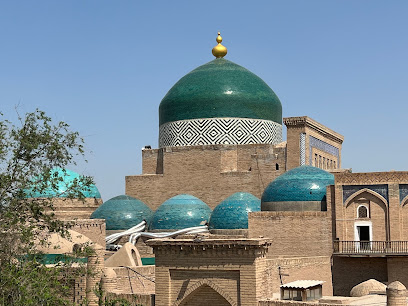
Nurullaboy Palace
Explore the stunning Nurullaboy Palace in Khiva, a historical museum showcasing the opulence of Uzbek heritage and architecture.
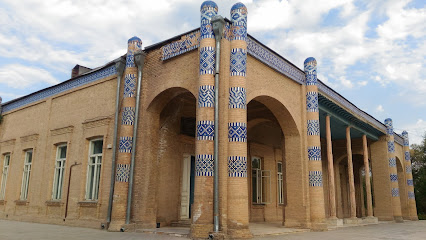
Itchan Kala west gate
Experience the historical charm of Itchan Kala West Gate in Khiva, Uzbekistan, where ancient architecture meets vibrant culture.
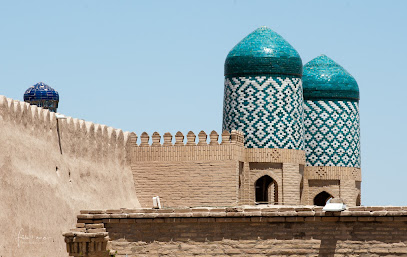
Malika Khiva Hotel
Immerse yourself in the rich culture of Khiva while enjoying the comfort and hospitality of Malika Khiva Hotel, your ideal base for exploration.

Islambek Travel
Experience the magic of Khiva, Uzbekistan with Islambek Travel, your trusted partner for unforgettable journeys through history and culture.
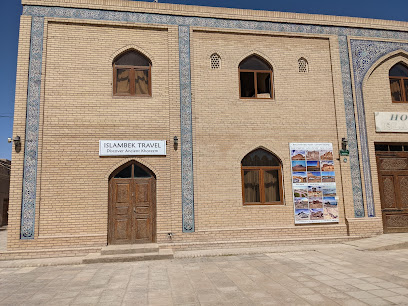
Qibla Tozabog
Discover the charm of Khiva at Qibla Tozabog, where tradition meets comfort in the heart of Uzbekistan's historical landscape.
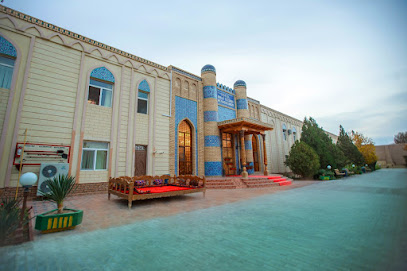
Xiva Lokomotiv Istirohat Bog’i
Experience the serene beauty of Xiva Lokomotiv Istirohat Bog’i, a lush park in Khiva perfect for relaxation and leisurely strolls in nature.
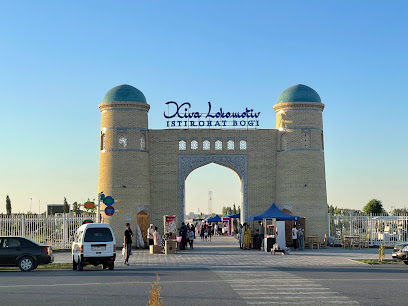
Allakuli Khan Madrassah
Explore the majestic Allakuli Khan Madrassah in Khiva, a stunning example of Islamic architecture and a key part of Uzbekistan's rich cultural heritage.
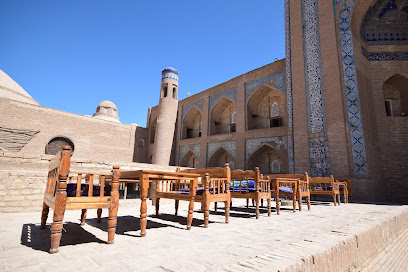
Unmissable attractions to see
Itchan Kala
Discover the architectural splendor and rich history of Itchan Kala, Khiva's UNESCO World Heritage Site, where every corner tells a story.

Juma Mosque
Discover the architectural beauty and spiritual significance of Juma Mosque in Khiva, a must-visit cultural landmark in Uzbekistan.
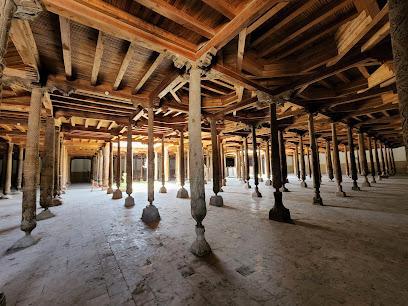
Pahlavan Mahmoud Mausoleum
Explore the Pahlavan Mahmoud Mausoleum in Khiva, showcasing stunning architecture and rich cultural history in Uzbekistan.
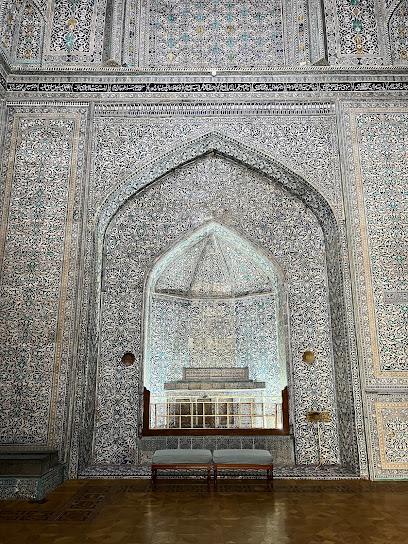
Pahlavan Mahmoud Mausoleum
Discover the Pahlavan Mahmoud Mausoleum in Khiva, a stunning historical landmark reflecting Uzbekistan's rich cultural heritage and architectural beauty.
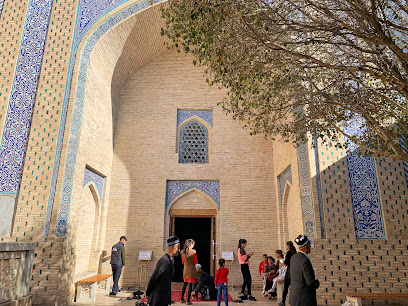
Nurullaboy Palace
Explore the majestic Nurullaboy Palace in Khiva, a historical gem showcasing Uzbekistan's rich cultural heritage and exquisite architecture.
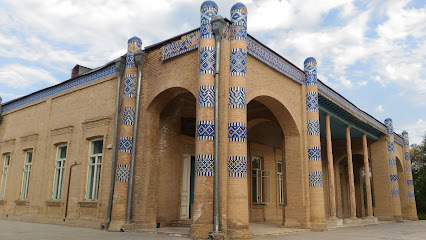
Mohammed Amin Khan Madrassah
Explore the exquisite Mohammed Amin Khan Madrassah in Khiva, a historical gem showcasing remarkable Islamic architecture and rich cultural heritage.
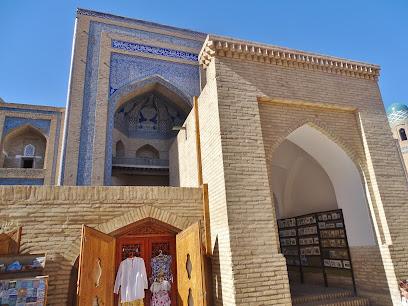
Sayid Allauddin Mausoleum
Explore the Sayid Allauddin Mausoleum, an architectural gem in Khiva reflecting the rich cultural heritage of Uzbekistan.
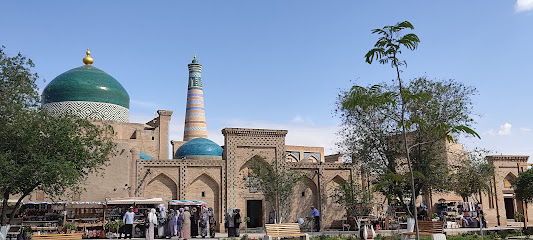
Qozi Kalon Madrassah - Museum of Musical Art
Explore the rich musical heritage of Uzbekistan at the Qozi Kalon Madrassah, a captivating museum in the heart of Khiva's historic architecture.
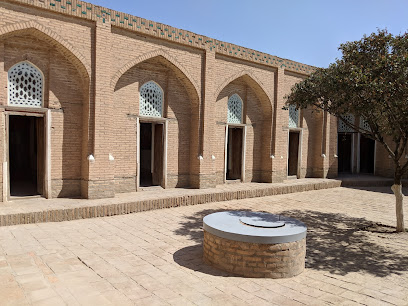
Essential places to dine
Khiva Moon
Discover authentic Uzbek flavors at Khiva Moon - a must-visit restaurant nestled in the historic city of Khiva.
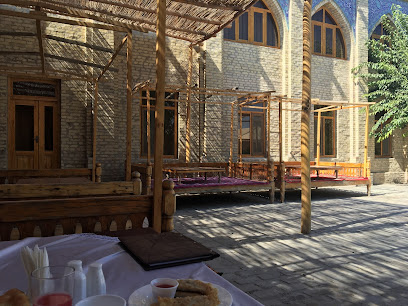
Tea House Bir Gumbaz
Discover tranquility at Tea House Bir Gumbaz in Khiva, where authentic Uzbek cuisine meets serene ambiance amidst stunning historical architecture.
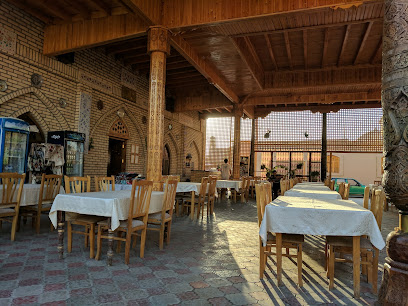
Cafe Zarafshon
Experience authentic Uzbek cuisine at Café Zarafshon in Khiva - where tradition meets flavor in every dish.
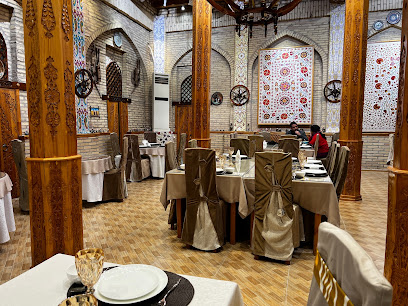
Tea house Mirza Boshi
Experience authentic Uzbek cuisine at Tea House Mirza Boshi, where tradition meets delightful hospitality in picturesque Khiva.
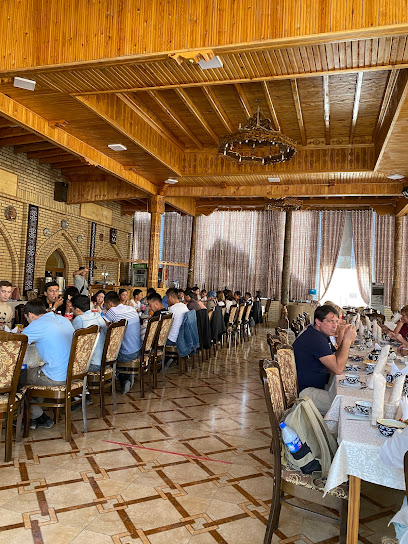
Sofra Restaurant
Experience the rich flavors of Uzbekistan at Sofra Restaurant - where exquisite steak meets warm hospitality in historic Khiva.
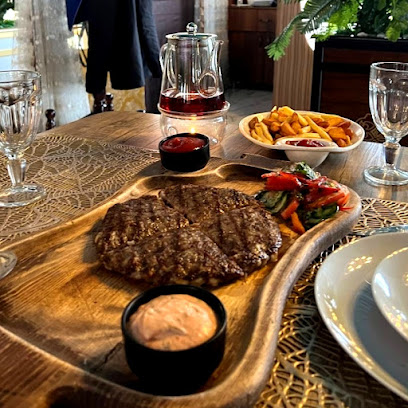
Yasavul Boshi Restaurant
Experience authentic Uzbek cuisine at Yasavul Boshi Restaurant in Khiva – where tradition meets flavor.
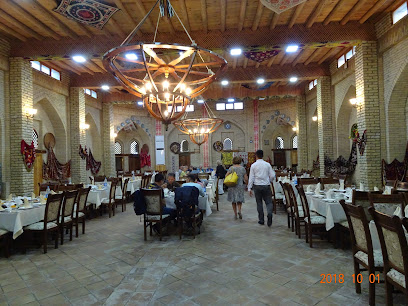
Khorzem Art Restaurant
Discover Khorzem Art Restaurant in Khiva: A family-friendly gem serving authentic Uzbek cuisine amidst vibrant local art.
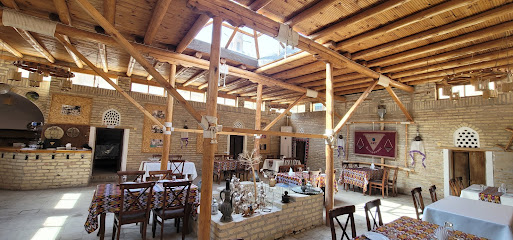
Restaurant Xiva Kafe Milliy taomlar and Central park hostel
Savor authentic Uzbek cuisine amidst stunning views at Restaurant Xiva Kafe in historic Khiva.
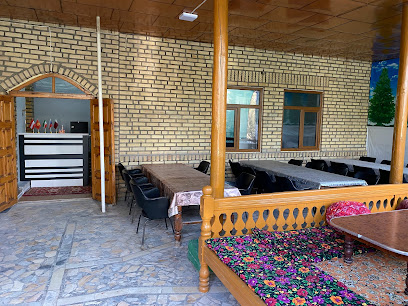
Caravan Khiva Restaurant
Discover authentic Uzbek cuisine at Caravan Khiva Restaurant – a culinary gem in the heart of historic Khiva.
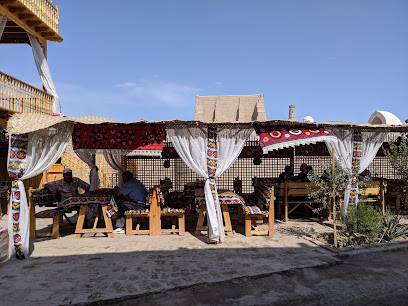
Tapas Restaurant
Experience exquisite Uzbek cuisine at Khiva's top-rated tapas restaurant offering diverse meat and vegetarian dishes in a vibrant setting.
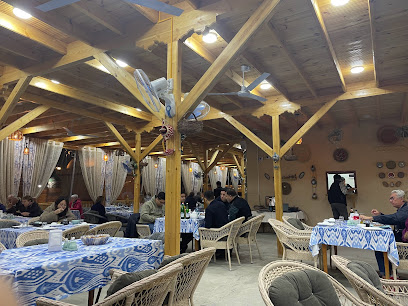
XonSaroy Restarani
Experience the authentic flavors of Uzbekistan at XonSaroy Restarani in Khiva—where tradition meets modern dining.
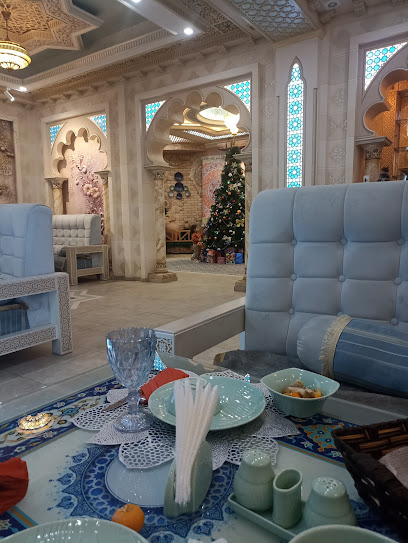
Chaixana Rustamboi
Experience authentic Uzbek cuisine at Chaixana Rustamboi in Khiva – a delightful blend of tradition and flavor awaits you!
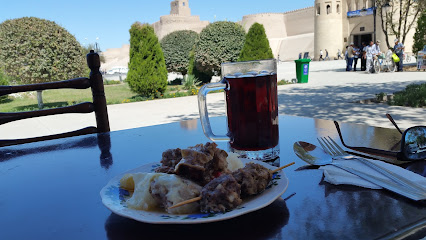
Dilnura Kafe
Experience authentic Uzbek cuisine at Dilnura Kafe in Khiva – where tradition meets flavor in every dish.
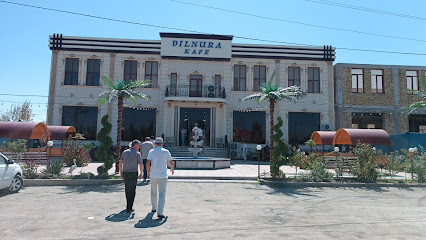
B&B Zafarbek
Discover authentic Uzbek cuisine at B&B Zafarbek in Khiva, where tradition meets taste in a cozy setting.

KAFE KABOBCHI
Experience authentic Uzbek cuisine at KAFE KABOBCHI in Khiva - a delightful blend of tradition and flavor awaits every visitor.
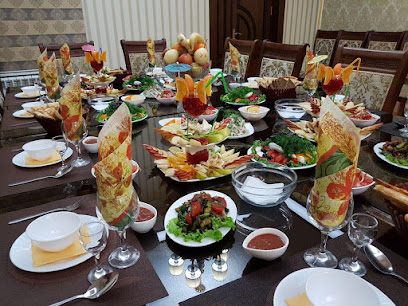
Markets, malls and hidden boutiques
Gastronom
Explore Gastronom in Khiva for a taste of Uzbekistan's finest local products and a true grocery shopping experience.
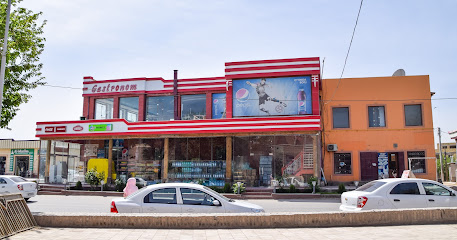
Khiva Bazaar
Discover the essence of Khiva at the lively Khiva Bazaar, where fresh produce, local delicacies, and handmade crafts await every traveler.
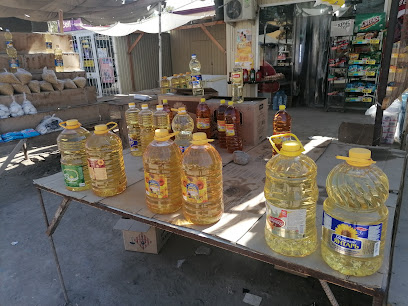
ecomarketkhiva
Discover the essence of Uzbekistan at Ecomarket Khiva, where local culture and unique souvenirs come together in a vibrant shopping experience.
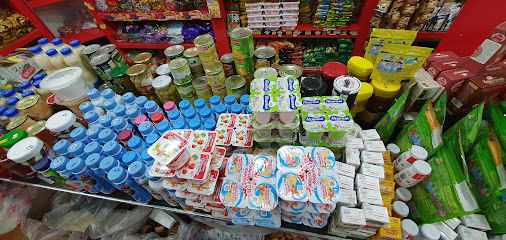
Магазин AROMA SHEIKH
Experience the rich culture of Khiva at AROMA SHEIKH, where unique shopping meets traditional Uzbek craftsmanship.
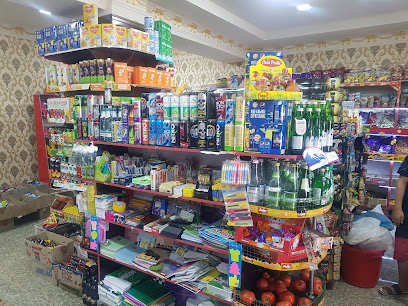
Rayyan Shop
Discover the beauty of Khiva at Rayyan Shop, a premier cosmetics store offering quality products and exceptional service in Uzbekistan.
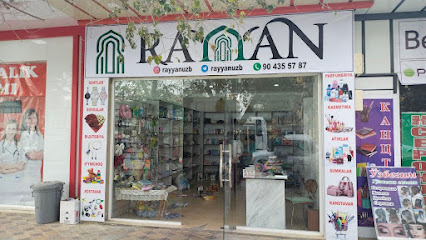
Palvan Kori Trading Center
Explore the Palvan Kori Trading Center in Khiva, where literature meets local culture in a vibrant shopping experience.
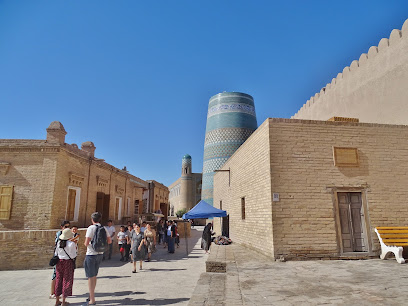
Otaboy ota market
Experience the vibrant atmosphere of Otaboy Ota Market in Khiva, where local culture, crafts, and cuisine come together.

Khiva yog'och o'ymakorligi
Discover the rich tradition of wooden carving in Khiva, Uzbekistan, where every piece tells a story of cultural heritage and artistry.
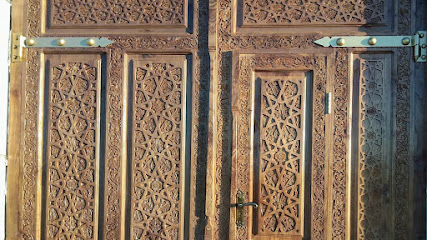
IDEAL STROY KHIVA
Explore the architectural wonders at Ideal Stroy Khiva, a premier building materials store showcasing the essence of Uzbek craftsmanship.

Smeshnyye Tseny Khiva
Explore the vibrant clothing styles of Khiva at Smeshnyye Tseny, offering a unique shopping experience infused with local culture.

Ogakhiy Market
Discover the vibrant Ogakhiy Market in Khiva, where local culture, authentic cuisine, and unique handicrafts await every traveler.
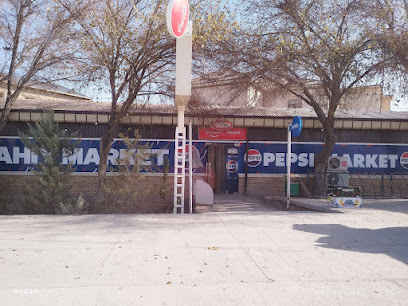
Market
Discover the flavors and colors of Khiva at the lively Wholesale Market, a true representation of Uzbekistan's agricultural richness and cultural heritage.
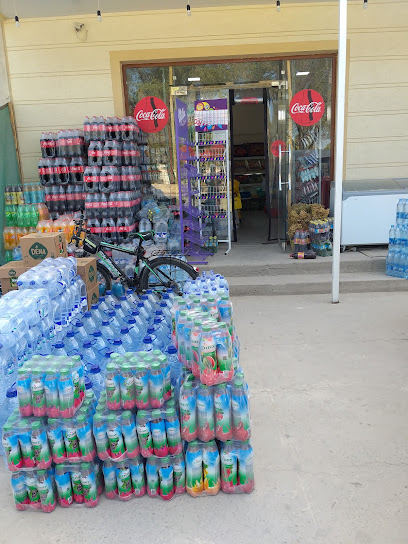
Murot botmon do'koni
Discover the heart of Khiva at Murot Botmon Do'koni, a local grocery store offering authentic Uzbek products and a glimpse into everyday life.

Khiva Buyum Bozori
Explore Khiva Buyum Bozori for authentic handcrafted treasures and immerse yourself in the rich cultural heritage of Uzbekistan.
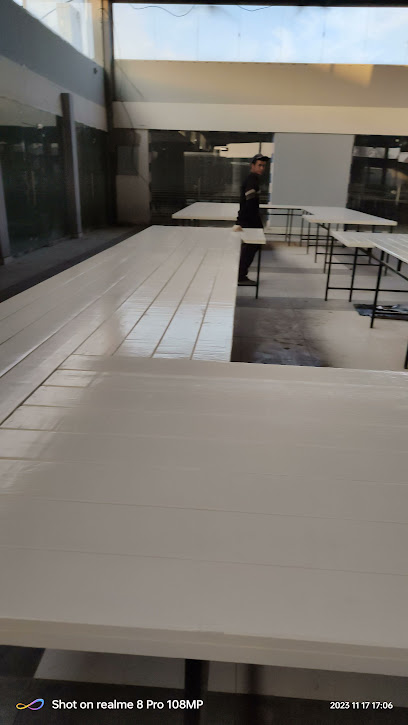
PROCTER &GAMBLE BRAND KHIVA
Explore Procter & Gamble Brand Khiva for quality products in the heart of Uzbekistan's historic city, blending modern convenience with rich cultural heritage.
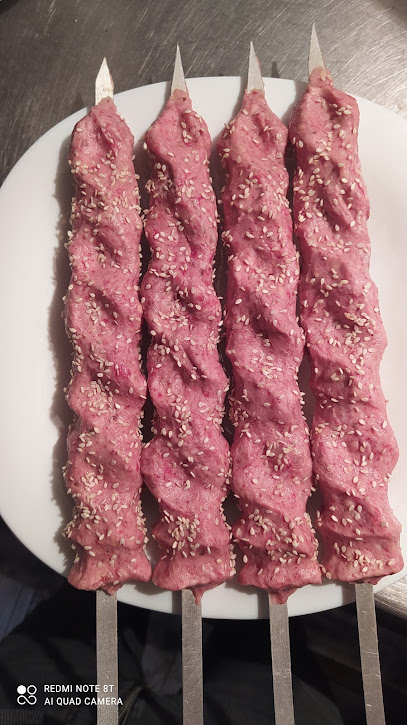
Essential bars & hidden hideouts
Terrassa Cafe & Restaurant
Discover the charm of Uzbek cuisine at Terrassa Cafe & Restaurant in Chiva, where delicious flavors meet breathtaking views.
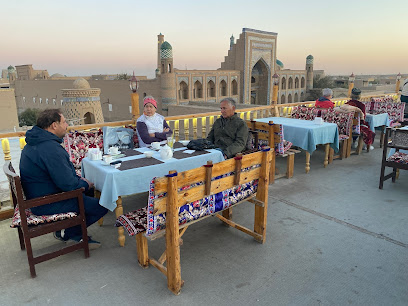
Khiva Moon
Discover the authentic flavors of Uzbekistan at Khiva Moon, where tradition meets modern culinary artistry in a charming setting.
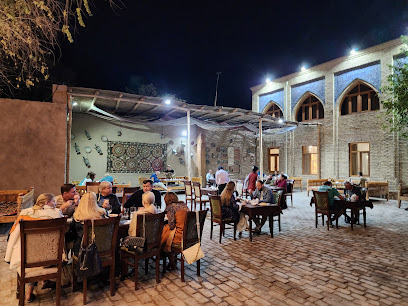
Tea House Bir Gumbaz
Discover the flavors of Uzbekistan at Tea House Bir Gumbaz in Khiva, a perfect blend of culture, cuisine, and hospitality.
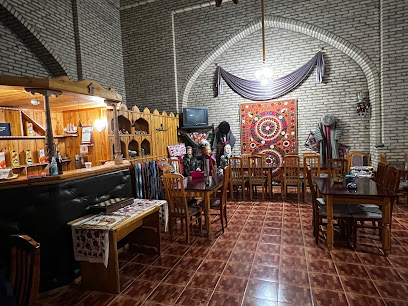
Cafe Zarafshon
Experience the authentic taste of Uzbekistan at Cafe Zarafshon, a cozy restaurant in Khiva known for its delightful dishes and warm atmosphere.
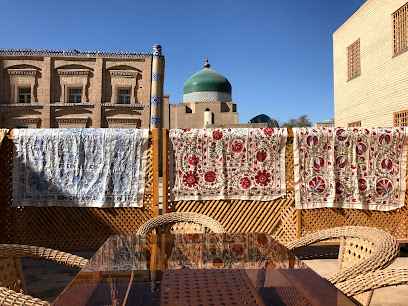
Sofra Restaurant
Discover the vibrant flavors of Khiva at Sofra Restaurant, a steakhouse offering an exquisite dining experience with stunning views.
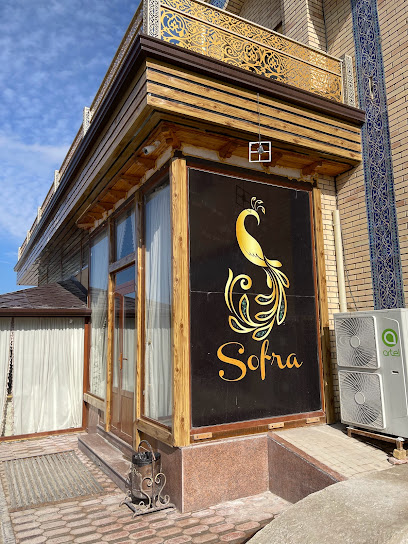
Yasavul Boshi Restaurant
Discover the authentic flavors of Uzbekistan at Yasavul Boshi Restaurant in Khiva, where tradition meets culinary excellence.
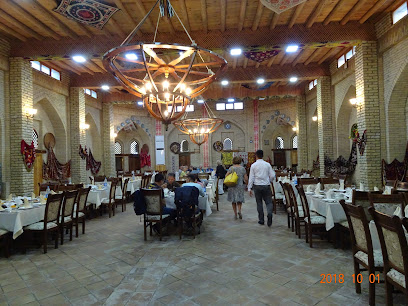
Restaurant Xiva Kafe Milliy taomlar and Central park hostel
Savor the flavors of Uzbekistan at Restaurant Xiva Kafe, where tradition and taste meet in the heart of Khiva's Central Park.
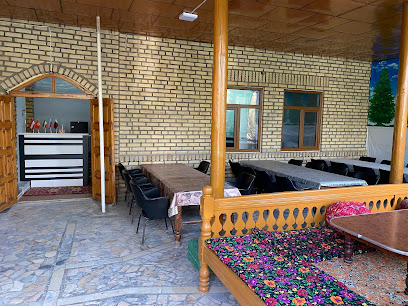
Caravan Khiva Restaurant
Experience authentic Uzbek flavors at Caravan Khiva Restaurant, a culinary delight in the heart of Khiva offering traditional dishes and warm hospitality.
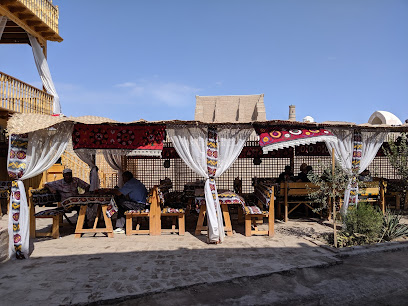
#RUSLANCAFE (Resto & Lounge)
Discover the culinary delights and vibrant atmosphere of Ruslan Cafe, a must-visit bar and lounge in the heart of Khiva, Uzbekistan.
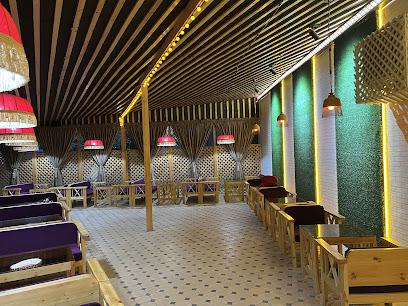
OLD KHIVA
Discover the historical wonders and vibrant culture of Old Khiva, a captivating gem on the Silk Road, perfect for every travel enthusiast.

Tapas Restaurant
Discover the rich culinary tapestry of Uzbekistan at Tapas Restaurant in Khiva, where every dish tells a story of tradition and flavor.
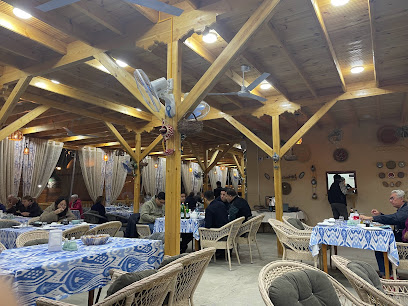
Чинор№1
Chinor №1: A lively bar in Khiva, Uzbekistan, offering a blend of traditional charm and modern nightlife with a diverse drink selection.
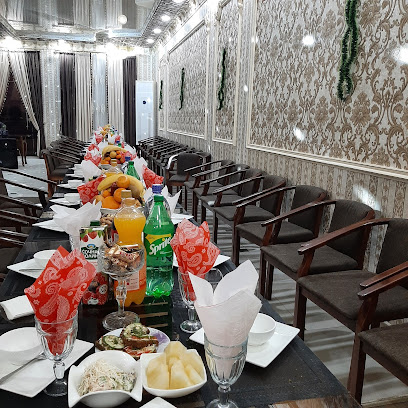
KAFE KABOBCHI
Discover the authentic taste of Uzbekistan at KAFE KABOBCHI in Khiva, where traditional cuisine meets a warm, inviting atmosphere.
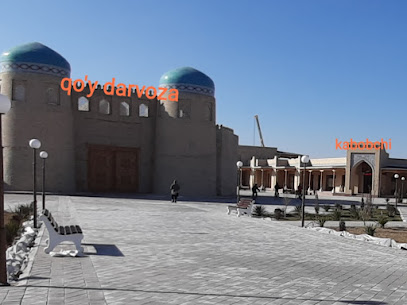
Cafe
Discover the culinary heritage of Khiva at this delightful grill restaurant, where tradition meets flavor in every bite.
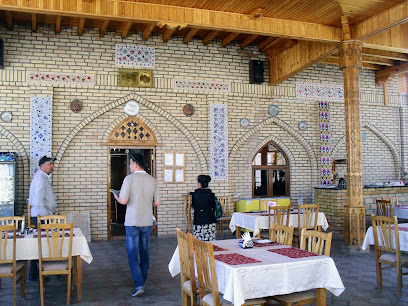
Local Phrases
-
- HelloSalom
[sah-LOHM] - GoodbyeXayr
[khayr] - YesHa
[hah] - NoYo'q
[yohk] - Please/You're welcomeIltimos
[eel-tee-MOHS] - Thank youRahmat
[rahk-MAHT] - Excuse me/SorryKechirasiz
[keh-chee-RAH-sees] - How are you?Qalaysiz?
[kah-LAH-siz] - Fine. And you?Yaxshi, sizchi?
[yahk-SHEE, seesh-CHEE] - Do you speak English?Inglizcha gapirasizmi?
[een-gleez-CHAH gah-pee-RAH-sees-mee] - I don't understandTushunmadim
[toosh-oon-MAH-deem]
- HelloSalom
-
- I'd like to see the menu, pleaseMenyuni ko'rsatib berasizmi, iltimos
[mehn-YOO-nee kohr-SAH-teeb beh-RAH-sees-mee, eel-tee-MOHS] - I don't eat meatMen go'sht yemayman
[mehn gohshst yeh-MAHY-mahn] - Cheers!Salomatliklar!
[sah-loh-MAHT-leek-lahr] - I would like to pay, pleaseTo'lovni berasizmi, iltimos
[toh-lawv-nee beh-RAH-sees-mee, eel-tee-MOHS]
- I'd like to see the menu, pleaseMenyuni ko'rsatib berasizmi, iltimos
-
- Help!Yordam!
[yohr-DAHM] - Go away!Uzoqqa ket!
[oo-ZOHK-kah keht] - Call the Police!Politsiyani chaqiring!
[poh-lee-tsee-YAH-nee chah-keer-eeng] - Call a doctor!Tabibni chaqiring!
[tah-BEEB-nee chah-keer-eeng] - I'm lostYo'l yo'qolganman
[yohl yoh-kohl-GAHN-mahn] - I'm illKasalman
[kah-SAHL-mahn]
- Help!Yordam!
-
- I'd like to buy...Sotib olmoqchiman...
[soh-teeb ohl-mohch-ee-MAHN] - I'm just lookingFaqat ko'rib chiqmoqchiman
[fah-KAHT koh-reep cheek-mohch-ee-MAHN] - How much is it?Bu qancha?
[boo kahn-CHAH] - That's too expensiveBu juda qimmat
[boo joo-DAH keem-MAHT] - Can you lower the price?Narxini pastga tushirishingiz mumkinmi?
[NAHR-nee-nee pahst-gah too-shee-REEN-gee-z moom-KEEN-mee]
- I'd like to buy...Sotib olmoqchiman...
-
- What time is it?Soat nechada?
[soh-AHT neh-CHAH-dah] - It's one o'clockBir soat
[beer soh-AHT] - Half past (10)O'n yarim
[ohn yah-REEM] - MorningErtalab
[ehr-TAH-lahb] - AfternoonTushlik
[toosh-LEEK] - EveningKechki
[kehch-KEE] - YesterdayKecha
[keh-chah] - TodayBugun
[boo-GOON] - TomorrowErtaga
[ehr-TAH-gah] - 1Bir
[beer] - 2Ikki
[EEK-kee] - 3Uch
[ooch] - 4To'rt
[tohrt] - 5Besh
[besh] - 6Olti
[ohl-tee] - 7Yeti
[yeh-tee] - 8Sakkiz
[sahk-KEEZ] - 9To'qqiz
[toh-KKEEZ] - 10O'n
[ohn]
- What time is it?Soat nechada?
-
- Where's a/the...?...qayerda?
[kah-YEHR-dah] - What's the address?Manzili nima?
[mahn-ZEE-lee nee-MAH] - Can you show me (on the map)?Menga ko'rsatingiz mumkinmi?
[MEHN-gah kohr-SAH-teen-geez moom-KEEN-mee] - When's the next (bus)?Keyingi (avtobus) qachon?
[keh-YEENG-ee ahv-toh-BOOS kah-CHOHN] - A ticket (to ....)Bilet (.... ga)
[bee-LEHT (gah)]
- Where's a/the...?...qayerda?
History of Khiva
-
Khiva's origins trace back to ancient times, with some legends suggesting it was founded by Shem, the son of Noah. Historical records indicate that Khiva was established as early as the 6th century CE, serving as a vital oasis on the Silk Road. This strategic location made Khiva a crucial trading and cultural hub, attracting merchants, scholars, and travelers from across the world.
-
In the 12th century, Khiva became a prominent city within the Khwarezmian Empire. The empire, known for its rich culture and advanced scientific knowledge, saw Khiva flourish as a center of learning and commerce. However, this period of prosperity faced a brutal end when the Mongol invasion led by Genghis Khan swept through the region in the early 13th century, resulting in significant destruction.
-
By the 16th century, Khiva had risen again as the capital of the Khanate of Khiva. This era saw the construction of many of Khiva's iconic architectural marvels, including the fortified inner city, Itchan Kala. The khanate was known for its vibrant cultural life and strategic political significance, but it also faced continuous threats from rival powers and internal strife.
-
In the 19th century, Khiva became a focal point of the Great Game, the strategic rivalry between the British Empire and the Russian Empire. The Russian Empire eventually succeeded in capturing Khiva in 1873, leading to significant political and social changes. Although the khanate retained a degree of autonomy, Russian influence permeated various aspects of life in Khiva, including architecture, education, and governance.
-
Following the Bolshevik Revolution, Khiva became part of the Soviet Union in 1924. This period brought about sweeping reforms, including the abolition of the khanate and the establishment of Soviet-style governance. Traditional practices and religious institutions were suppressed, while modern infrastructure and education systems were introduced. Despite these changes, Khiva managed to preserve much of its historical and cultural heritage.
-
In 1990, the historic inner city of Khiva, Itchan Kala, was designated a UNESCO World Heritage Site. This recognition highlighted the city's unique architectural and cultural significance, featuring well-preserved examples of Islamic architecture, including palaces, mosques, madrasahs, and mausoleums. The UNESCO designation has helped to protect and promote Khiva's rich heritage, attracting tourists and scholars from around the globe.
Khiva Essentials
-
Khiva is located in the Khorezm Region of Uzbekistan. The closest airport is Urgench International Airport, approximately 35 kilometers away. From Urgench, you can take a taxi or a bus to Khiva, which typically takes around 30 to 40 minutes. Alternatively, you can reach Khiva by train from Tashkent or Bukhara, with Urgench being the nearest railway station. From Urgench, taxis and buses are readily available to complete the journey to Khiva.
-
Khiva is a compact city, and many of its attractions are within the walled Itchan Kala, making it convenient to explore on foot. For destinations outside the old city, local taxis are a practical option. Public buses and minibuses (marshrutkas) operate within Khiva and connect to nearby towns. Bicycles can also be rented for a unique way to explore the area.
-
The official currency in Uzbekistan is the Uzbekistani Som (UZS). Credit cards are accepted in some hotels, restaurants, and shops, but it is advisable to carry cash, especially in smaller establishments and markets. ATMs are available in Khiva, but it is a good idea to withdraw sufficient cash in major cities like Tashkent or Bukhara before arriving in Khiva to ensure you have enough funds.
-
Khiva is generally a safe destination for tourists. However, it is recommended to take standard precautions. Avoid walking alone at night in unfamiliar areas and keep an eye on your belongings in crowded places. While Khiva does not have specific high-crime areas targeting tourists, staying vigilant and aware of your surroundings is always a good practice.
-
In case of emergency, dial 103 for medical assistance and 102 for the police. The local hospital and medical clinics in Khiva are equipped to handle minor health issues. It is recommended to have travel insurance that covers medical emergencies. Pharmacies are available in the city where you can purchase over-the-counter medications.
-
Fashion: Do dress modestly, especially when visiting religious sites. Avoid wearing revealing clothing. Religion: Do respect local customs and traditions. Always cover your head when entering mosques and mausoleums. Public Transport: Do be respectful and give up your seat to elderly passengers. Don't eat or drink on public transport. Greetings: Do greet people with a handshake. A slight bow of the head is also a sign of respect. Eating & Drinking: Do try local delicacies and accept food offerings graciously. Don't refuse hospitality, as it is considered impolite.
-
To experience Khiva like a local, visit the local bazaars where you can buy fresh produce and traditional Uzbek goods. Engage with locals, as they are often friendly and willing to share stories about the city's history and culture. Don't miss visiting the architectural wonders within Itchan Kala, a UNESCO World Heritage Site. For a unique experience, attend a local cultural performance featuring traditional music and dance.
Trending Landmark in Khiva
Nearby Cities to Khiva
-
Things To Do in Urgench
-
Things To Do in Bukhara
-
Things To Do in Ashgabat
-
Things To Do in Mary
-
Things To Do in Navoi
-
Things To Do in Bayramaly
-
Things To Do in Qarshi
-
Things To Do in Samarkand
-
Things To Do in Shakhrisabz
-
Things To Do in Panjakent
-
Things To Do in Djizak
-
Things To Do in Jizzakh
-
Things To Do in Turkestan
-
Things To Do in Tursunzoda
-
Things To Do in Tashkent













